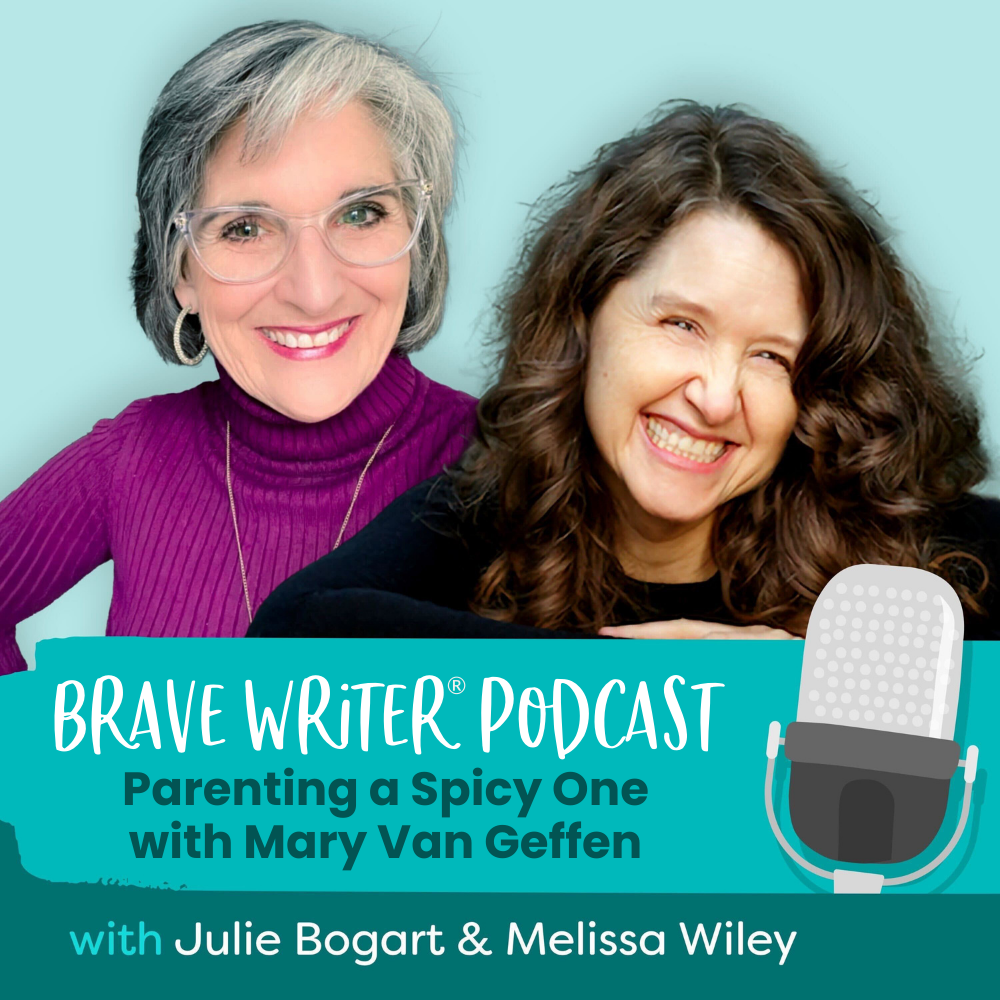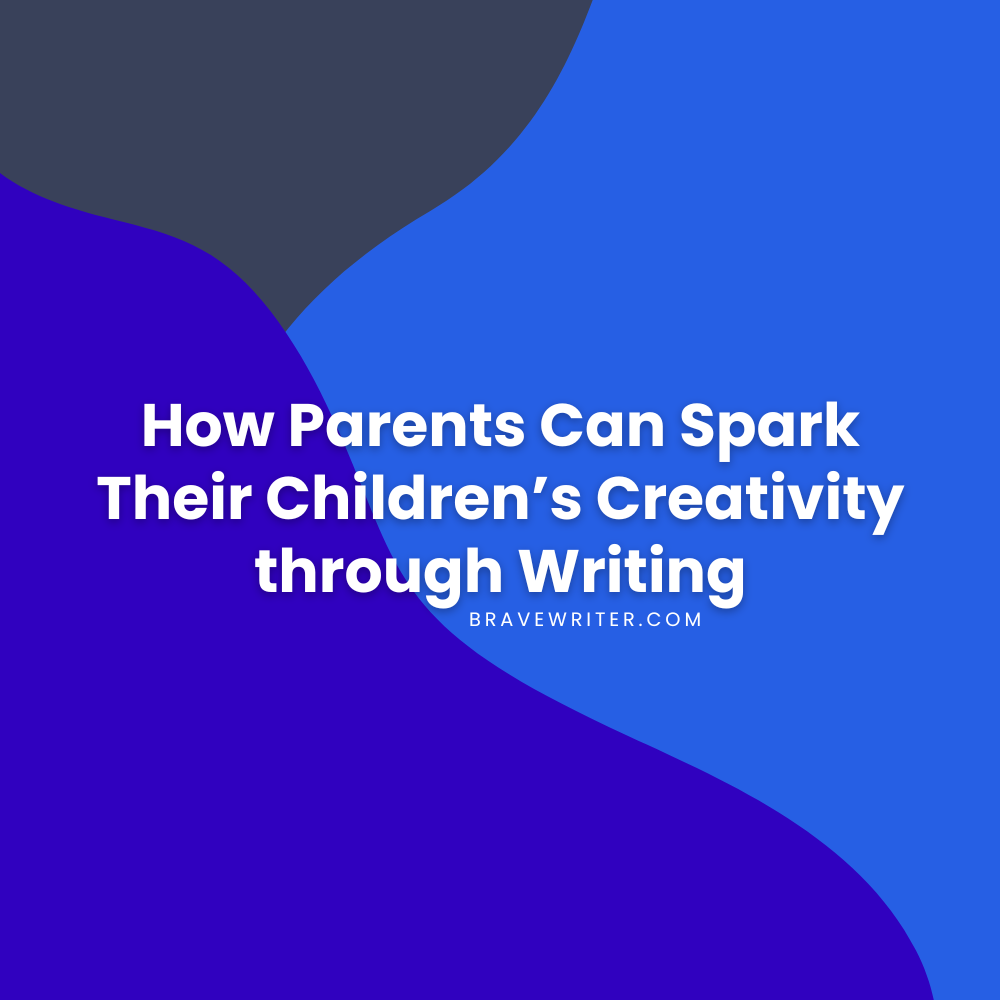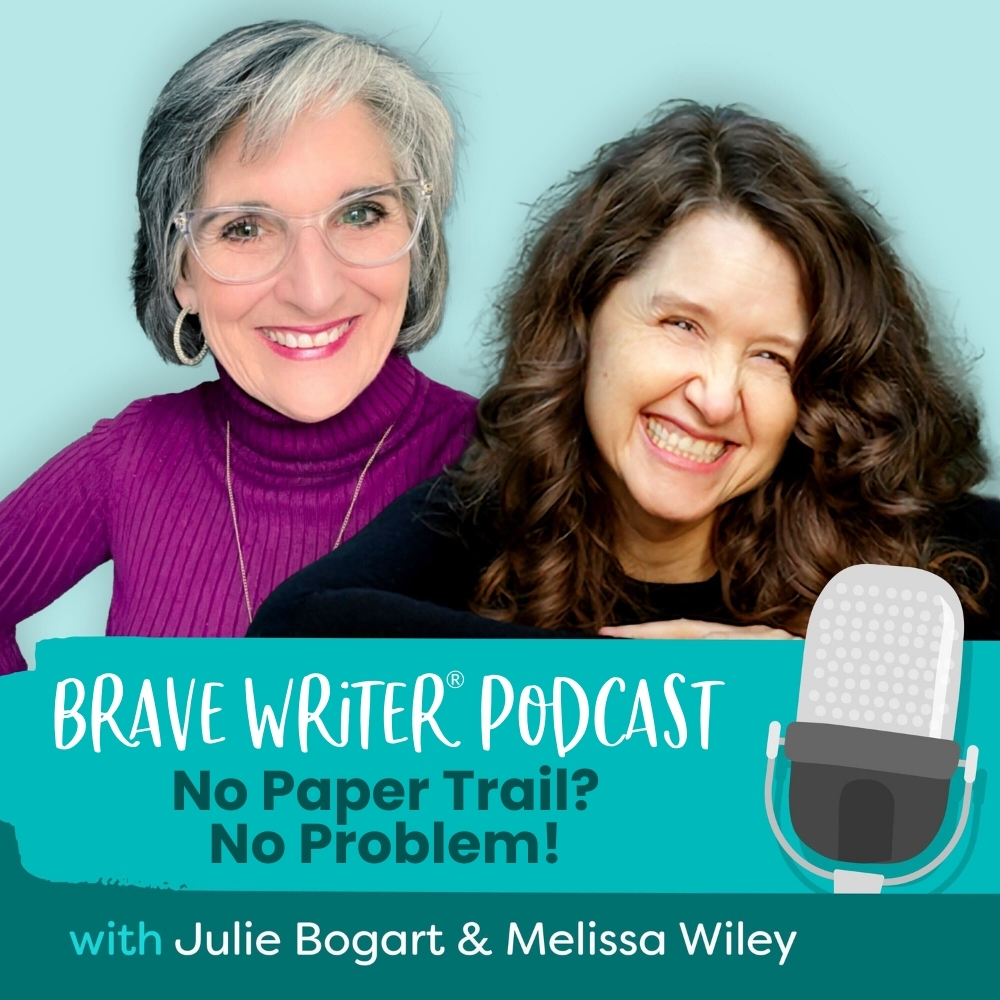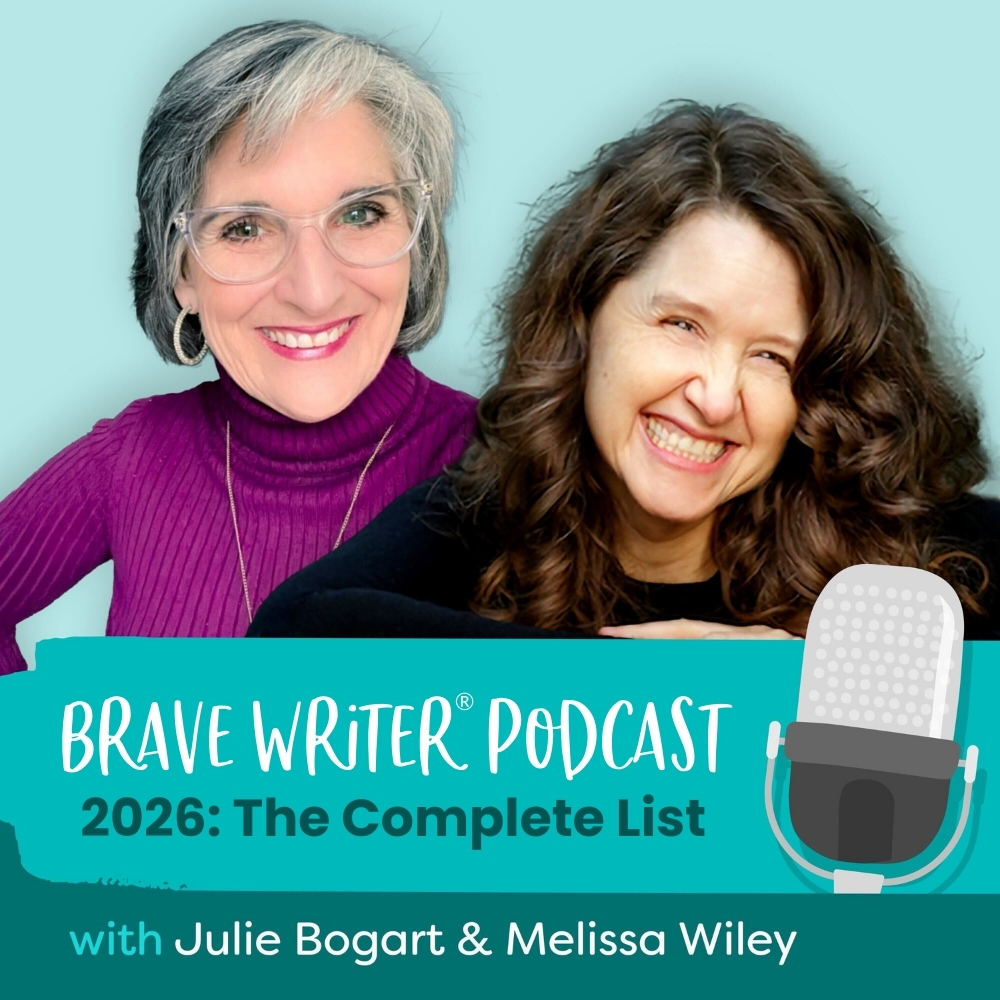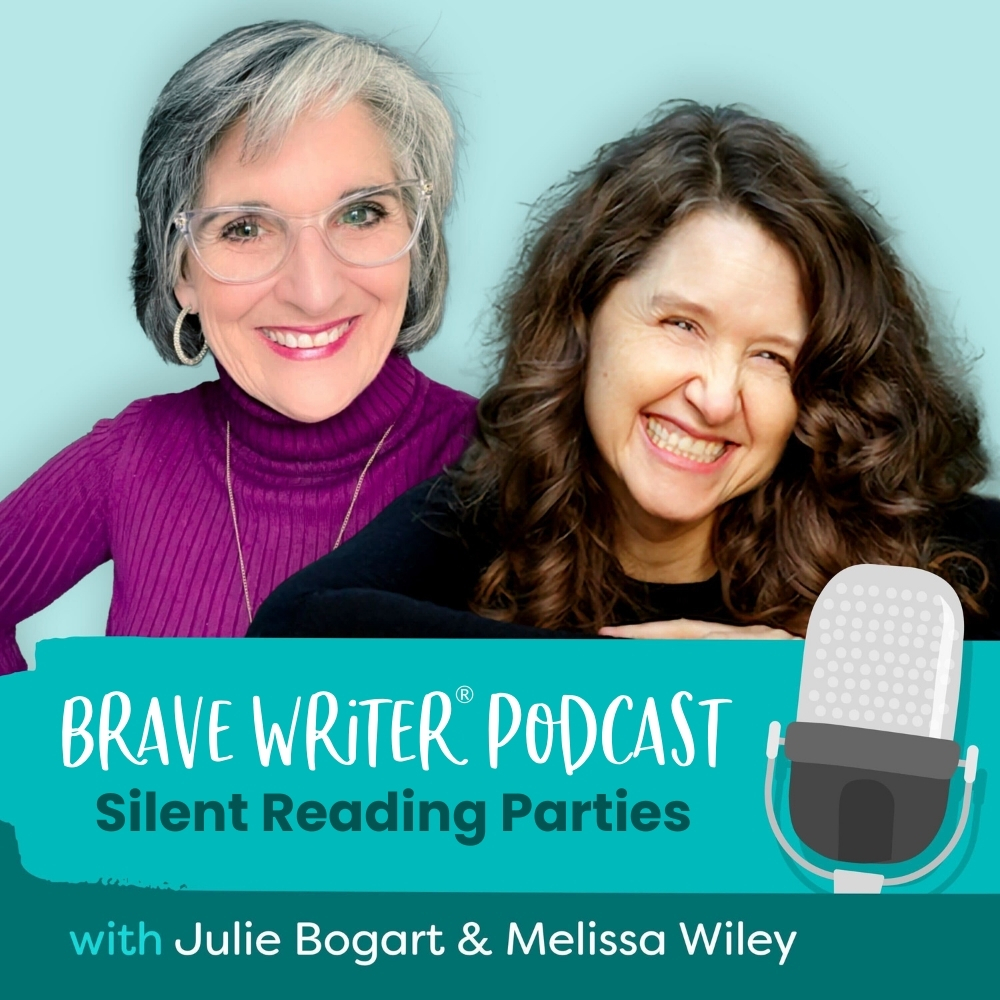
What if the most powerful way to strengthen focus, creativity, and connection in your home is…quiet?
In this Brave Writer podcast episode, we explore the growing trend of silent reading parties and why shared, sustained reading helps both kids and adults reclaim attention in a scrolling world.
We talk about:
- body doubling,
- device fatigue,
- reading rituals that actually work,
- and how simple practices like DEAR time or candlelit reading can change the rhythm of a homeschool day.
If your family struggles to settle into books, this conversation offers gentle, practical ways to read together again. Join us—and then grab a book.
Show Notes
We are surrounded by noise that doesn’t sound loud. Notifications, infinite feeds, constant refresh. Even when a room is quiet, our minds are trained to anticipate interruption. That’s why sitting down with a book can feel strangely uncomfortable, for us and for our kids.
One gentle antidote is something surprisingly simple: reading together in silence.
Silent reading isn’t new. Many of us remember Sustained Silent Reading or DEAR time from school, moments when the entire room paused and everyone entered a book at once. What we’re seeing now is a revival of that practice in a fresh form: silent reading parties. Groups gather in bookstores, pubs, living rooms, or libraries, not to discuss books but to read quietly side by side.
What makes this so effective is shared focus.
Reading as a Shared Practice
There’s a concept called body doubling, where doing a task alongside someone else helps regulate attention. It’s not about instruction or accountability. It’s about presence. When everyone in the room is reading, the nervous system settles. There’s nothing else to miss, nowhere else to be.
This works beautifully in homeschool families. When parents read alongside their kids instead of multitasking, reading becomes visible. A physical book or e-reader sends a different message than a phone, even if the phone technically holds a book. Kids read what we model.
We’ve found that setting the stage matters. Lighting a candle. Setting a short timer. Removing phones from the room entirely. Even five minutes can be enough to help the brain drop in. Once that threshold is crossed, longer stretches often follow naturally.
Attention Is a Skill
Many kids today have never experienced being lost in a book. That isn’t a failure of character. It’s a reflection of the environments we all inhabit. Sustained attention has to be practiced.
Sometimes that practice looks unconventional. Chewing crunchy snacks while reading can help some kids focus. Switching between poetry, nonfiction, and stories during a single reading session can lower resistance. Reading doesn’t have to be linear to be meaningful.
What matters is helping kids notice how attention works and giving them safe places to stretch it.
Reading Feeds Creativity
When we talk about protecting reading time, we aren’t defending nostalgia. We’re making space for creativity, interior life, and original thought. Books ask us to stay. To follow an idea all the way through. To inhabit someone else’s perspective long enough for it to change us.
In homeschooling, choosing reading is a statement of trust. Trust that:
- learning happens through relationship,
- not everything meaningful can be measured,
- and when kids are nourished by ideas, language, and story, growth follows.
A silent reading party doesn’t need decorations or discussion questions. It just needs a shared agreement: for this time, we read. Together. Quietly. And let that be enough.
Resources
- Grab a discounted copy of our Brave Writer Guide to the Winter Games!
- Big props to Christopher Frizzelle, whose Silent Reading Parties are one of the inspirations for this episode.
- Find Sue Monk Kidd’s Writing, Creativity, and Soul in the Brave Writer Book Shop. And don’t miss our selection of books that make great companion reads for the Winter Games!
- Brave Writer class registration is open! Our Building Brave Writers classes are a great pick for a winter jumpstart.
- Check out the Boomerang for Jack London’s The Call of the Wild and White Fang
- Share William Wordsworth’s sonnet “The World Is Too Much With Us” with your kids
- Visit Julie’s Substack to find her special podcast for kids (and a lot more!)
- Purchase Julie’s new book, Help! My Kid Hates Writing
- Find community in our membership forum, the Brave Learner Home
- Learn more about the Brave Writer Literature & Mechanics programs
- Start a free trial of CTCmath.com to try the math program that’s sure to grab and keep your child’s attention
- Subscribe to Julie’s Substack newsletters, Brave Learning with Julie Bogart and Julie Off Topic, and Melissa’s Catalog of Enthusiasms
- Sign up for our Text Message Pod Ring to get podcast updates and more!
- Send us podcast topic ideas by texting us: +1 (833) 947-3684
- Interested in advertising with us? Reach out to media@bravewriter.com
Connect with Julie
- Instagram: @juliebogartwriter
- Threads: @juliebogartwriter
- Bluesky: @bravewriter.com
- Facebook: facebook.com/bravewriter
Connect with Melissa
- Website: melissawiley.com
- Substack: melissawiley.substack.com
- Instagram: @melissawileybooks
- Bluesky: @melissawiley.bsky.social
Produced by NOVA


